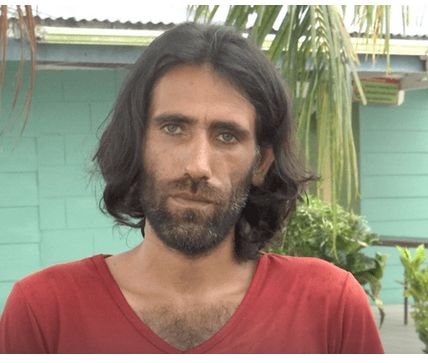'Ein Sieg der Menschlichkeit'
Australien betreibt eine extrem repressive Flüchtlingspolitik.
Wer von der Marine aufgegriffen wurde, landete in abgelegenen Insel-Camps auf Nauru oder in Papua Neuguinea – aus den Augen aus dem Sinn, aber mit Erfolg. Seit fünf Jahren hat nicht ein einziger Bootsflüchtling Asyl in Australien erhalten und Premier Malcolm Turnbull verspricht, dass das auch so bleibt.

Einer, den dieses Schicksal ereilt hat ist der iranisch-kurdische Schriftsteller Behrouz Boochani, seit fünf Jahren auf der Insel Manus interniert.
Für einen Roman, den er dort geschrieben hat, erhielt er kürzlich den australischen Victorian premier’s Literary Preis
Dies ist seine per Video übertragene Dankesrede ab, die er anlässlich der Preisverleihung hielt:
When I arrived at Christmas Island six years ago, an immigration official called me into the office and told me that they were going to exile me to Manus Island, a place in the middle of the Pacific Ocean. I told them that I am a writer. That same person just laughed at me, and ordered the guards to exile me to Manus.
It is a victory not only for us, but for literature and art and above all, it is a victory for humanity. A victory for human beings, for human dignity.
I kept this image in my mind for years, even while I was writing my novel – and even right now, as I’m writing this acceptance speech. It was an act of humiliation.
When I arrived in Manus, I created another image for myself. I imagined a novelist in a remote prison. Sometimes I would work half naked beside the prison fences and imagine a novelist locked up right there, in that place. This image was awe inspiring. For years I maintained this image in my mind. Even while I was forced to wait in long queues to get food, or while enduring other humiliating moments.

This image always helped me uphold my dignity and keep my identity as a human being. In fact, I created this image in opposition to the image created by the system. After years of struggling against the system that has completely ignored our individual identities, I am happy that we have arrived at this moment.
This proves that words still have the power to challenge inhumane systems and structures. I have always said that I believe in words and literature. I believe that literature has the potential to make change and challenge structures of power. Literature has the power to give us freedom. Yes, it is true.
I have been in a cage for years but throughout this time my mind has always been producing words, and these words have taken me across borders, taken me overseas and to unknown places. I truly believe words are more powerful than the fences of this place, this prison.
This is not just a basic slogan. I am not an idealist. I am not expressing the views of an idealist here. These words are from a person who has been held captive on this island for almost six years. A person who has witnessed an extraordinary tragedy unfold in this place. These words allow me to appear there with you, tonight.
With humility, I would like to say that this award is a victory. It is a victory not only for us, but for literature and art and above all, it is a victory for humanity. A victory for human beings, for human dignity. A victory against a system that has never recognised us as human beings. It is a victory against a system that has reduced us to numbers.
This is a beautiful moment. Let us all rejoice tonight in the power of literature.